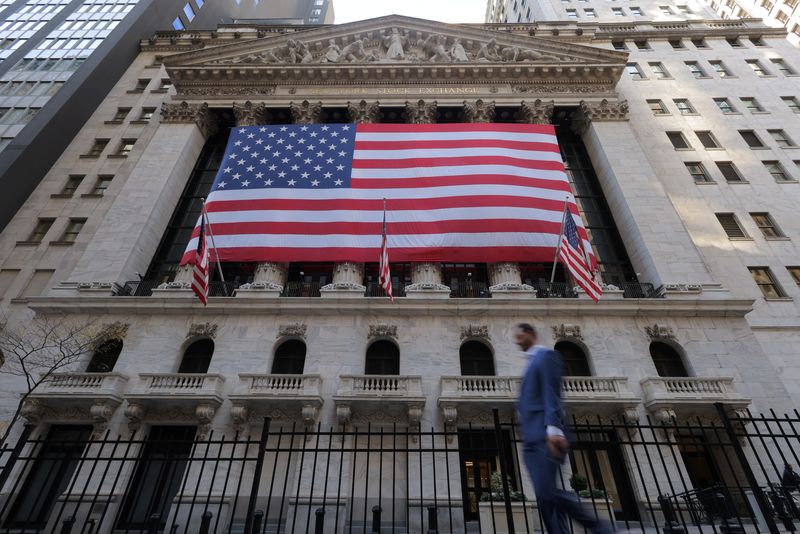After Trump win, investors savor ‘red sweep’ possibilities

By Saqib Iqbal Ahmed
NEW YORK (Reuters) – Investors are increasingly factoring what potential Republican control of government could mean for stocks, bonds and currencies, even as the first feverish market reactions to Donald Trump’s presidential victory begin to settle.
A so-called red sweep scenario, in which Republicans control the White House and both houses of Congress, could clear the way for Trump to implement his economic proposals with a freer hand. Many, such as tax cuts, are seen as being growth-friendly but also driving up inflation risks.
Republicans held a narrow edge on Friday as election officials tallied the final votes that will determine control of the U.S. House of Representatives, though Democrats succeeded in flipping a pair of New York state seats.
“With many of Trump’s policies geared to support stocks, particularly small caps, markets are likely to respond well to a red sweep,” said JJ Kinahan, CEO of IG North America and president of online broker Tastytrade.
Expectations that such policies will be pushed through under Trump to some degree have helped lift corners of the stock market higher, boost the dollar and weigh on Treasuries, as investors recalibrated their portfolios for stronger growth, looser regulations and the possibility that inflation worries could keep the Federal Reserve from cutting rates too deeply next year.
One notable move has been in small cap stocks, with the Russell 2000 index up about 8% this week.
While some of those moves have lost steam in recent days, investors are still gaming out how Trump’s policies could affect markets and the economy over the long-term, especially under a red sweep scenario.
Trump has promised to slash federal regulations that he says limit job creation. He has pledged to keep in place a 2017 tax cut he signed while in office, and Trump’s economic team has discussed a further round of individual and corporate tax cuts beyond those enacted in his first term.
Strategists at Goldman Sachs said their earnings per share estimates for the S&P 500 would rise by about 4% if Trump reduced the statutory domestic corporate tax from 21% to 15%.
Deutsche Bank (ETR:DBKGn) analysts said they would upgrade their 2025 U.S. growth forecast to 2.5-2.75% from 2.2% in the event of a red sweep. However, they expect to reduce their 2026 growth forecast in anticipation of economic uncertainty associated with an intensifying trade war.
Republican control of government could also provide a longer-term boost for the dollar, which has already risen to its highest level in four months against a basket of its peers following a post-election surge this week.
Strategists at JP Morgan see the euro sinking to $1.00-$1.02, down about 6% from its current level, if there is a sweep, as opposed to a drop to $1.05 in the case of a split Congress.
History may also be on the side of continued strong stock performance if a red sweep comes to pass.
The S&P 500 rose an average of 9.1% in years of such unified control against a 6.7% average annual return for divided government, in which the opposing party holds at least one of the Senate or House of Representatives, according to an analysis by Evercore ISI of data since 1928. The index is up 26% this year and hit 6,000 points for the first time ever on Friday.
To be sure, even with the Republican Congressional majority, some investors believe the narrow margins faced in both the House and Senate may still present challenges to implementing fiscal and regulatory changes.
“We may not get everything that has been promised. The discussion on the campaign trail is always very different than the legislation that gets passed,” said Paul Nolte, senior wealth advisor and market strategist for Murphy & Sylvest. “I think a lot of that is already in the pricing for stocks today.”







